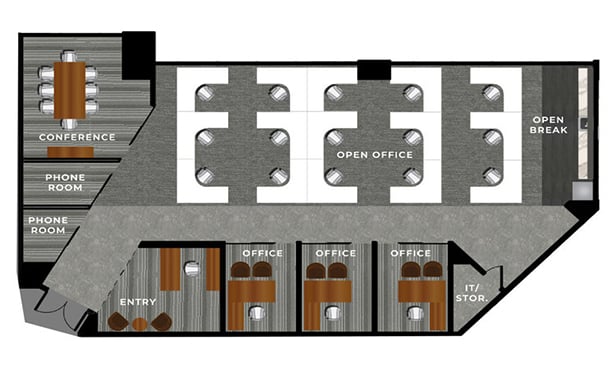MIAMI—Al LaPera is working to spread the word: Many energy-related codes for commercial real estate buildings around the country are about to get tougher. In fact, Florida's energy codes will become much more stringent this summer, while other Southeast states are expected to be close behind.
LaPera, a Tampa-based senior energy performance consultant for TLC Engineering for Architecture, is talking to industry groups like the American Institute of Architects, around the Southeast helping them prepare for the new codes. Commercial real estate developers will need to rethink their project planning processes to adjust to the new requirements, he says, because on average, energy efficiency standards are increasing by close to 20%.
That, in turn, can lead to higher construction costs, which may be partially offset with careful planning, a fully integrated design and quality engineering. Details of the codes, which are taken from international standards, can differ from state to state. But building owners, developers, engineers, builders, and architects would be smart to watch how Florida's industry professionals adapt in coming months.
GlobeSt.com talked with LaPera about the impact of the new codes and how the industry should be making adjustments now in part one of this exclusive interview. In part two, he will discuss specific design changes, cost impacts and how developers should respond.
GlobeSt.com: How will the new codes be stricter than current regulations?
Lapera: As an example, Florida has adopted the International Energy Conservation Code 2012, which is based on ASHRAE 90.1-2010. The new code requires buildings to be at least 19% more efficient than our current standards. It also mandates commissioning for all buildings with air conditioning systems over 40 tons.
Commissioning requires that an engineer—preferably one who did not work on the original project or other qualified commissioning authority—confirm that all systems are operating as designed and meeting the energy code's goals. The best way to handle this is by working with engineers early in the process to achieve compliance with the code along with the required efficiencies.
Architects traditionally have relied on heating, ventilation and air conditioning systems to achieve building efficiency requirements. But the capabilities of these systems are maxed out in terms of gaining efficiencies. So to make buildings even more efficient, you will have to look elsewhere. To reach the new efficiency requirements, architects and engineers working together need to focus on a building's envelope—the walls, windows, roof, doors, and insulation, which is at the heart of the new energy code savings.
GlobeSt.com: When will the new codes take effect?
Lapera: Florida's new codes will be adopted on June 30 and will apply to anyone obtaining a building permit after that date. Each state has a different timeline for adopting new codes. More than 15 states across the country have already implemented similar codes, but Florida is the first in the Southeast. I expect surrounding states to roll out similar changes over the next two years.
GlobeSt.com: Are the new codes similar to standards required for LEED certification?
Lapera: The energy code updates will get buildings closer to qualifying for higher levels of LEED certification, which I believe you need to remain competitive in this lease market. Buildings that were already striving for LEED certification will not have a problem adhering to the new codes.
© Touchpoint Markets, All Rights Reserved. Request academic re-use from www.copyright.com. All other uses, submit a request to [email protected]. For more inforrmation visit Asset & Logo Licensing.






